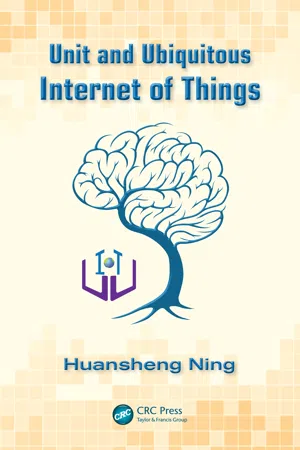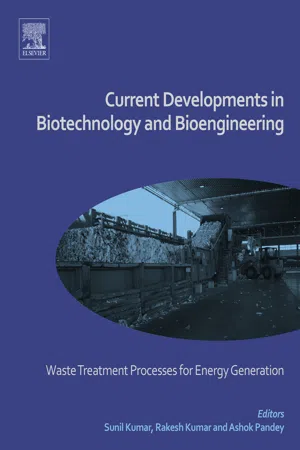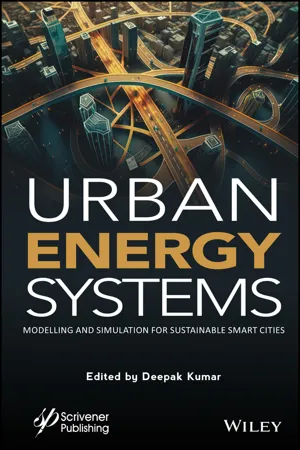Geography
Energy Management Technologies
Energy management technologies refer to the tools and systems used to monitor, control, and optimize energy usage in various settings. These technologies can include smart meters, building automation systems, energy management software, and renewable energy systems. By implementing these technologies, organizations and individuals can better understand and reduce their energy consumption, leading to cost savings and environmental benefits.
Written by Perlego with AI-assistance
Related key terms
1 of 5
4 Key excerpts on "Energy Management Technologies"
- eBook - PDF
- Huansheng Ning(Author)
- 2016(Publication Date)
- CRC Press(Publisher)
173 10 E NERGY M ANAGEMENT 10.1 Introduction Energy, as a basic factor for both artificial and natural systems, should be elaborately managed to guarantee normal system operation. Energy management finds solutions to address how to provide energy for the system and how to make full use of the energy. However, the specific content of energy management can be different due to vari-ous constraints in different scenarios. During ubiquitous things being sensed, controlled, and connected by sensors, actuators, and networks in Internet of Things (IoT), energy management becomes an impor-tant open issue due to the limited communication and infrastructure resources as well as the energy crisis. It is noteworthy to achieve energy requirements and sustainability without causing environmental prob-lems for sustainable IoT development. Energy management is a key topic in traditional networks. For example, in wireless sensor networks (WSNs), energy management is performed to realize persistent network lifetime by energy harvest-ing technology and dynamic power management technology. In the information and communications technology (ICT) sector, energy management mainly considers reducing energy demand through a series of technologies (e.g., low-power consumption circuits, simpli-fied system structures, virtualization, and efficient air conditioning systems) to reduce energy consumption in communication systems and data centers. In recent years, a renewable energy supply for ICT equipment has been attracting more attention because of its advan-tages, such as its ease to deploy in places without power grids and reduction of greenhouse gas (GHG) emissions. Differing from tra-ditional energy management, energy management in IoT should be reconsidered according to IoT characteristics (e.g., ubiquitous sensing, 174 UNIT AND UBIQUITOUS INTERNET OF THINGS network of networks, and intelligent processing). - eBook - ePub
Current Developments in Biotechnology and Bioengineering
Waste Treatment Processes for Energy Generation
- Sunil Kumar, Rakesh Kumar, Ashok Pandey(Authors)
- 2019(Publication Date)
- Elsevier(Publisher)
- 1. The technologies adapted in any field should be refined in such a way that maximum energy can be saved at the end of the process.
- 2. The techniques should be chosen such that they will enhance the efficiency of the process.
- 3. Energy should be saved and that energy may be used for further operations.
- 4. Renewable energy sources [16] should be implemented or may be compulsory wherever they can be easily adoptable.
- 5. GISs are able to do such mapping as may be helpful for utilizing the energy outputs.
- 6. GISs can be helpful in locating such advanced tools for utilization.
2. Applications of Geographic Information Systems in Energy Utilization
The salient features of GIS in energy utilization can be divided into following categories:- 2.1. spatial DBMS (SDBMS);
- 2.2. GIS for collection of waste, storage of waste, and transport route optimization;
- 2.3. GIS for site selection (based on location, site area, distance);
- 2.4. decision support system and multicriteria analysis;
- 2.5. GIS for energy distribution;
- 2.6. Web GIS (real-time monitoring).
2.1. Spatial Database Management Systems
Additional capabilities of handling spatial data are embedded in SDBMSs. Storing, modeling, and “querying the spatial data” (geographic data) are the key features of an SDBMS [17] . An SDBMS stores all the location details of WTE conversion sites and energy sources sites, and the distance between the plant and the source is also stored as spatial data. Along with the spatial data, the SDBMS can also store attribute data, i.e., name of the plant, amount of energy production, etc. The attribute data can be assigned to the spatial data wherever they are needed. One can monitor all the statistics related to a particular project.Storage of waste is one of the major steps involved in solid waste management. There are several factors that are considered for placing bins in the city:2.2. Geographic Information System for Collection of Waste, Storage of Waste, and Transport Route Optimization
2.2.1. Storage of Waste
- eBook - PDF
Hybrid Intelligent Approaches for Smart Energy
Practical Applications
- John A, Senthil Kumar Mohan, P. Sanjeevikumar, Yasir Hamid, Sanjeevikumar Padmanaban, John A.(Authors)
- 2022(Publication Date)
- Wiley-Scrivener(Publisher)
Smart energy solutions are often comparable to intelli- gent building structures in many other areas of production. As a means of detecting the presence of the human psyche through instruments, it relies mostly on difference throughout the amplitude of a wireless connection. The approach is also applied on the current framework of smart energy management. In a smart device, this strategy strengthens communication, understands intelligent power control, and reduces maintenance cost. The micro-grid intelligent management framework has been explicitly defined as offering safe, sustainable, and efficient micro-grid service by manag- ing the flow of power between the main grid, dispersed fuel supplies, and demand. In smart management systems, autonomous and unified manage- ment of a variety of different controls is also used. 12.4.1 Smart Control Thermal System In certain situations, the development of the smart electricity grid refers to thermal power systems, but optimum measurement and control for insu- lation systems reflects cleverness. To maximize the activity of construction Smart Energy Management Techniques in Industries 5.0 237 electrical appliances, a multi-mediator based scheme is used. This frame- work is useful in achieving unified coordination between different devices and ensuring that renewable energies can satisfy future demands for heat. The findings demonstrate that only the device can be regulated in a reliable place by the multi-mediator framework and attain economic and environ- mental benefits. The fourth-generation geothermal power idea is defined as a comprehensible technique that utilizes high therapeutic generators to develop a better electricity grid in an effective manner. By enhancing power to provide even reduced structures with reduced grid liabilities, the method integrates low grade heat components to intelligent energy sources. - eBook - ePub
Urban Energy Systems
Modeling and Simulation for Smart Cities
- Deepak Kumar(Author)
- 2023(Publication Date)
- Wiley-Scrivener(Publisher)
Sometimes generating units situated far from the distributed system create power losses. Therefore, demanded power is not generated from the generating units. According to research, one day non-renewable sources will end due to the extreme number of non-renewable sources that are still used by generating units. So, it is necessary to manage the energy [ 2 ]. Energy management is the specific way which helps to fulfil our power demand, and it also gives an idea about the eco-friendly characteristics of our environment. In recent days, renewable sources like wind, solar, hydro, tidal, geothermal, and biomass energy are used for energy generation; those are more helpful for our environment and fulfil our energy demands easily. Renewable sources save the consumption of the cost related to raw materials and change the pattern of a clean cost structure. Renewable energy sources are also helpful for reducing the use of fossil fuels, coal, and oils in generation units. If we manage the power of renewable energy sources properly, then we get a more efficient power supply and we can also save the consumption of cost, input power, etc. Managing the energy in microgrids is more reliable than using renewable sources [ 3, 4 ]. Microgrids integrate the power supply of renewable and sometimes conventional sources. Energy management is used for reducing and controlling energy consumption. There are many techniques used for energy management of microgrids like AI (Artificial Intelligence) based, fuzzy logic–based, etc. By using those techniques, it is easy to manage the energy of the microgrids: the battery storage and carbon emission. Using those techniques, we can get eco-friendly, low-cost energy management systems in microgrids. These techniques have to control the power supply, simulate various values of generated energy, forecast values of generated energy and give proper energy management systems [ 5 ]
Index pages curate the most relevant extracts from our library of academic textbooks. They’ve been created using an in-house natural language model (NLM), each adding context and meaning to key research topics.



